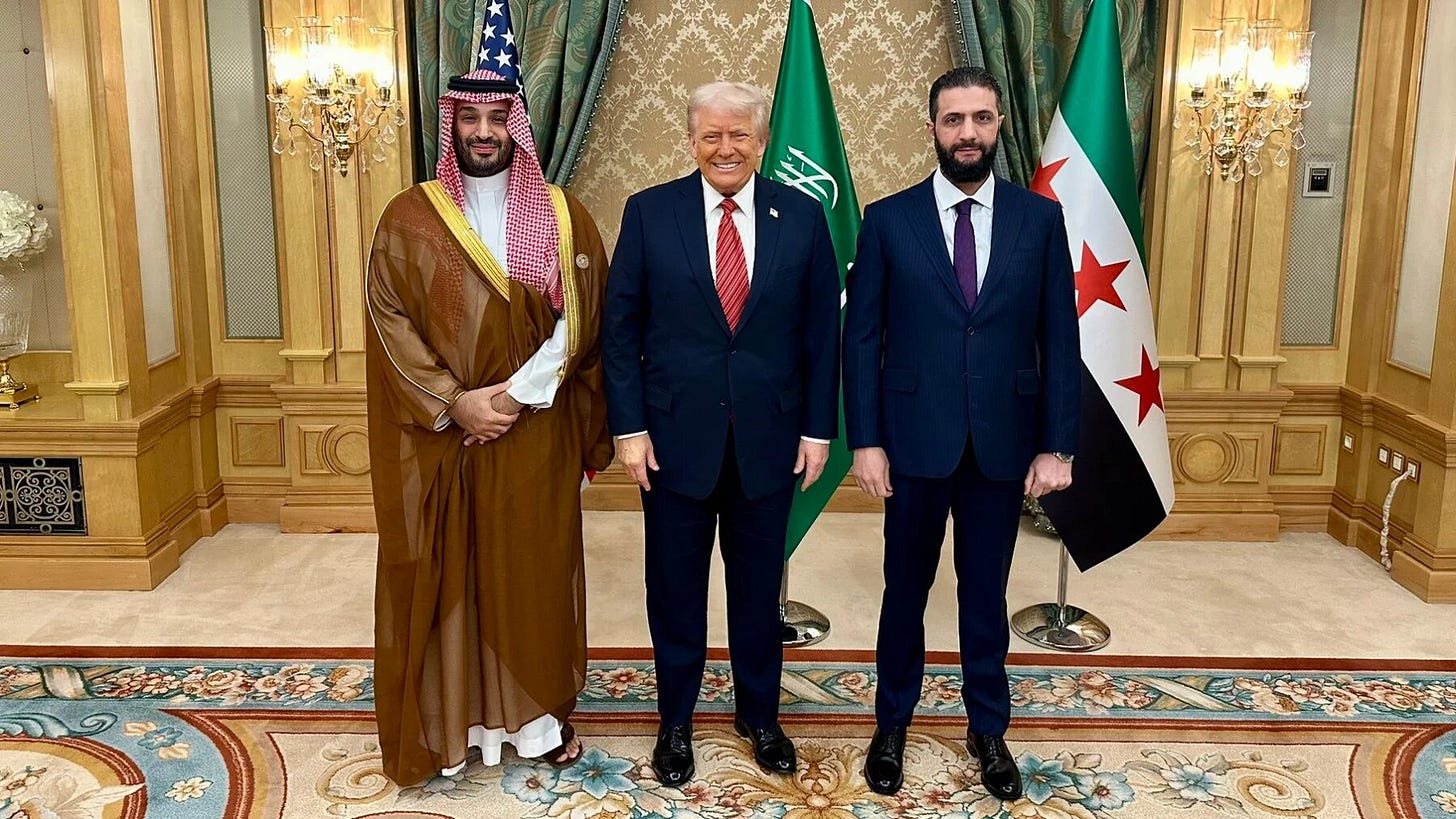On 14th May 2025, President Donald Trump made headlines by meeting with Syria’s new interim president, Ahmed al-Sharaa, in Riyadh. Trump announced the lifting of American sanctions on Syria and urged al-Sharaa to join the Abraham Accords, aiming to normalise relations with Israel. He claimed that al-Sharaa had agreed in principle, stating, “He said, ‘Yes.’ But they have a lot of work to do.”
However, this development is fraught with complexities. Al-Sharaa, formerly known as Abu Mohammed al-Golani, leads the formerly al-Qaeda-affiliated group Hayat Tahrir al-Sham. He was once imprisoned by US forces in Iraq. Syria’s historical hostility toward Israel, including disputes over territories like the Golan Heights, makes the prospect of normalisation highly contentious. Israel has expressed scepticism, with Prime Minister Benjamin Netanyahu reportedly cautioning against lifting sanctions on Syria. He was ignored.

Following his meeting in Riyadh this week, Trump’s assertions about Saudi Arabia’s imminent entry into the Abraham Accords also lack substantiation. While he described it as a “dream,” he acknowledged that Riyadh would proceed “in its own time”. Saudi Arabia has consistently maintained that normalisation with Israel is contingent upon the establishment of a Palestinian state, a stance reiterated before and during Trump’s visit.
This all strikes at the core of the problem with the Abraham Accords. They are diplomatic theatre rather than a substantive policy for peace. The complexities of Middle Eastern geopolitics, coupled with radical Islamist regimes, historical animosities and unresolved conflicts, suggest that the Abraham Accords are merely a reductive attempt to achieve peace through mercantilism. The reality is much more complicated.
In September 2020, the world watched a White House ceremony billed as historic. The Abraham Accords, normalisation agreements between Israel and the United Arab Emirates and Bahrain, later joined by Sudan and Morocco, were heralded as a breakthrough in Middle East peace, a seismic shift in Arab-Israeli relations, and a crowning achievement in foreign policy for the Trump administration.
Nearly five years later, the fanfare has faded. Beneath the rhetoric, the Abraham Accords have proven mostly meaningless. Not in the sense that they didn’t happen, or that they didn’t yield real economic and technological ties, but in the deeper, strategic sense that they have not altered the core dynamics of the Israeli-Palestinian conflict, nor fundamentally reshaped the regional order in the way their architects promised.
Let’s examine why.



